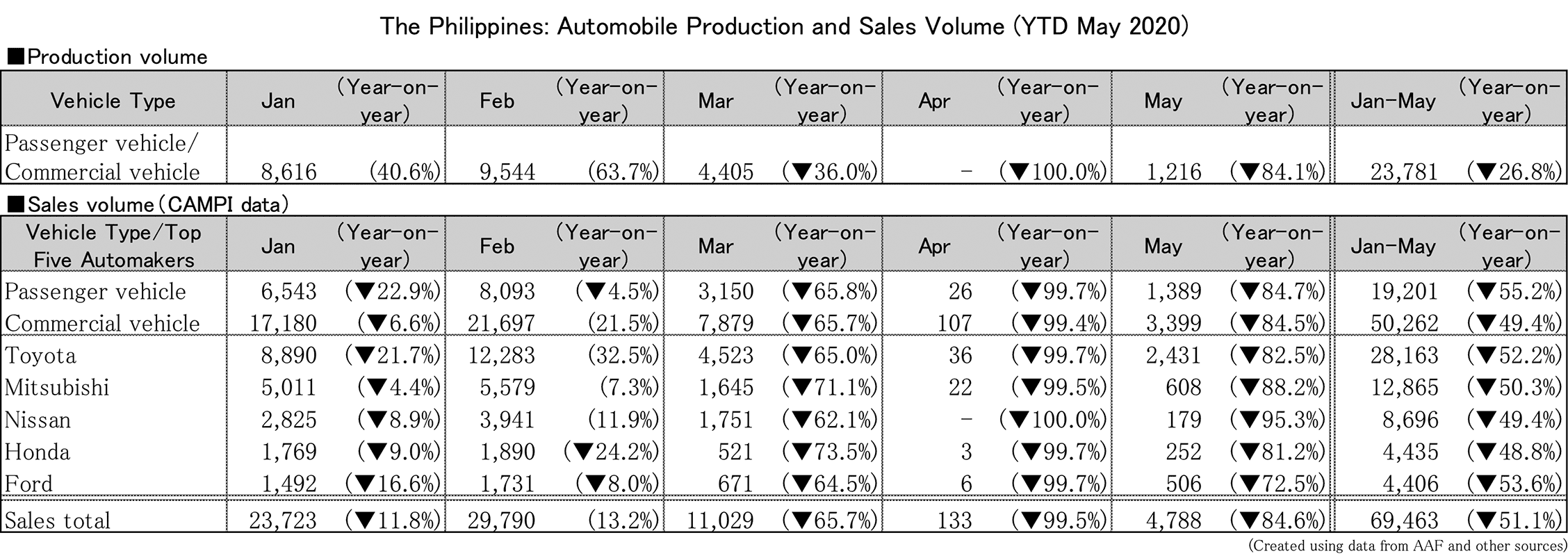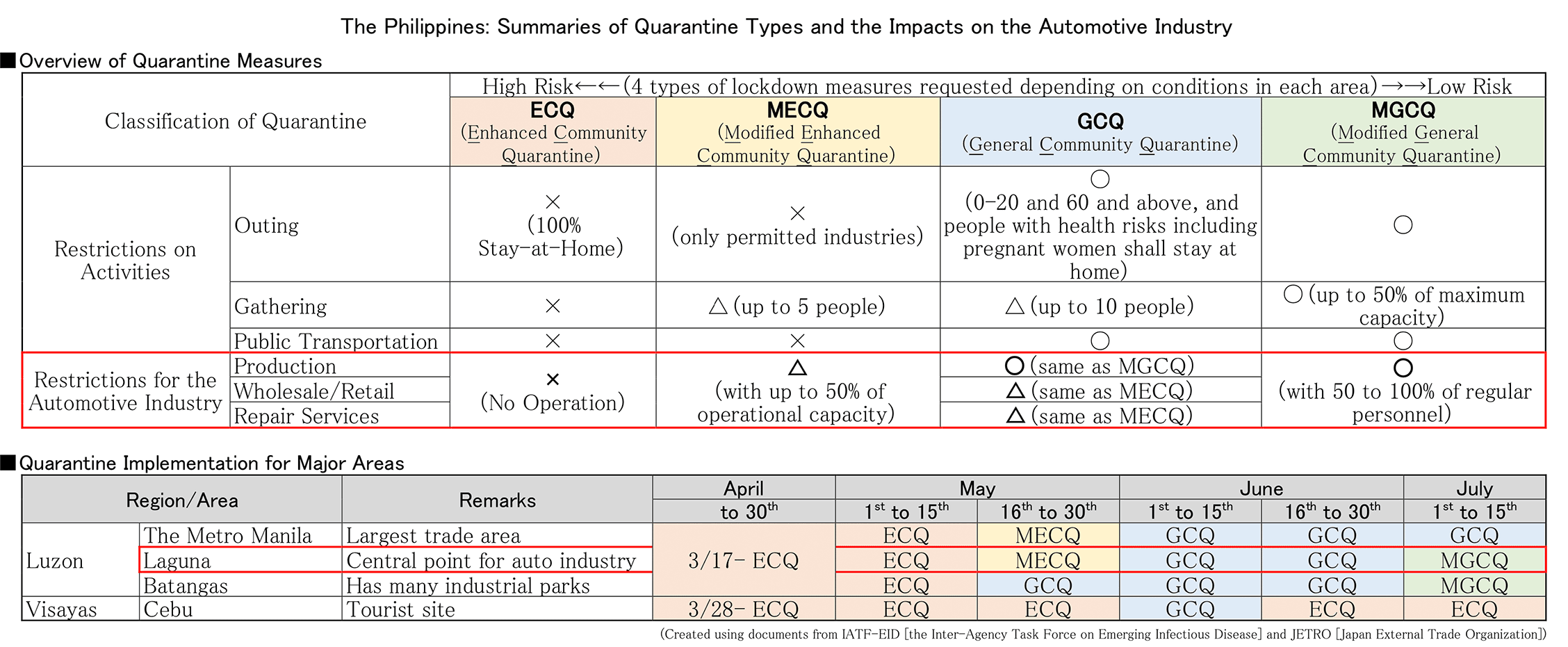AAA weekly
2020-09-28
Copyright FOURIN, Inc. 2025
Impact of the New Coronavirus in the Philippines: Car Sales Dropped By 50% From January To May 2020 Due to the Prolonged Quarantine Measure
In the Philippines, strict quarantine measures to prevent the new coronavirus infection have been implemented for the longest period among the major ASEAN countries. This has had a major impact on the production and sales of automobiles there. Although the quarantine measures have been gradually eased by the beginning of July, the spread of infection is continuing and it is taking time to normalize business.
On March 17, a community quarantine order was issued to Luzon. It was later expanded to the Visayas and the entire country, barring automobile and its parts production and sales. Since May 16, the quarantine measure has been classified into 4 categories: ECQ, MECQ, GCQ, and MGCQ. Each local government has been gradually relaxing these restrictions depending on the situation. Many regions implement the least restrictive MGCQ order from July 1 to 15. However, the Metro Manila area remains at the GCQ level, and Cebu, where the spread of the infection is still active, has the ECQ implemented.



Under the ECQ, production and sales of automobiles are prohibited, while they are conditionally permitted under the MECQ, GCQ, and MGCQ. In Laguna, Luzon, where factories of major automakers are concentrated, the restriction measures were changed from ECQ to MECQ on May 16, and they resumed production which had been suspended since mid-March. Automobile sales from January to May 2020 fell by 50% year-on-year due to the 2 months of EQC.
On the economic front, its GDP growth rate is expected to fall to negative growth in 2020. The government plans to revise the 2nd comprehensive tax reform, the “Corporate Income Tax and Incentives Rationalization Act (CITIRA),” also serving as a countermeasure against the pandemic. But it has not yet to be realized.

